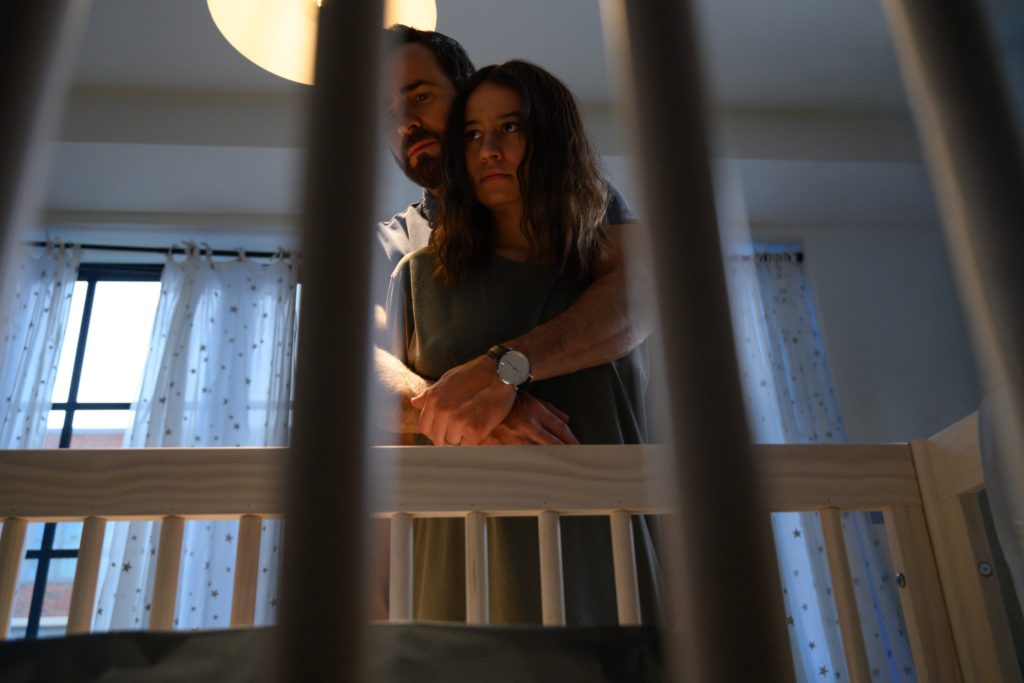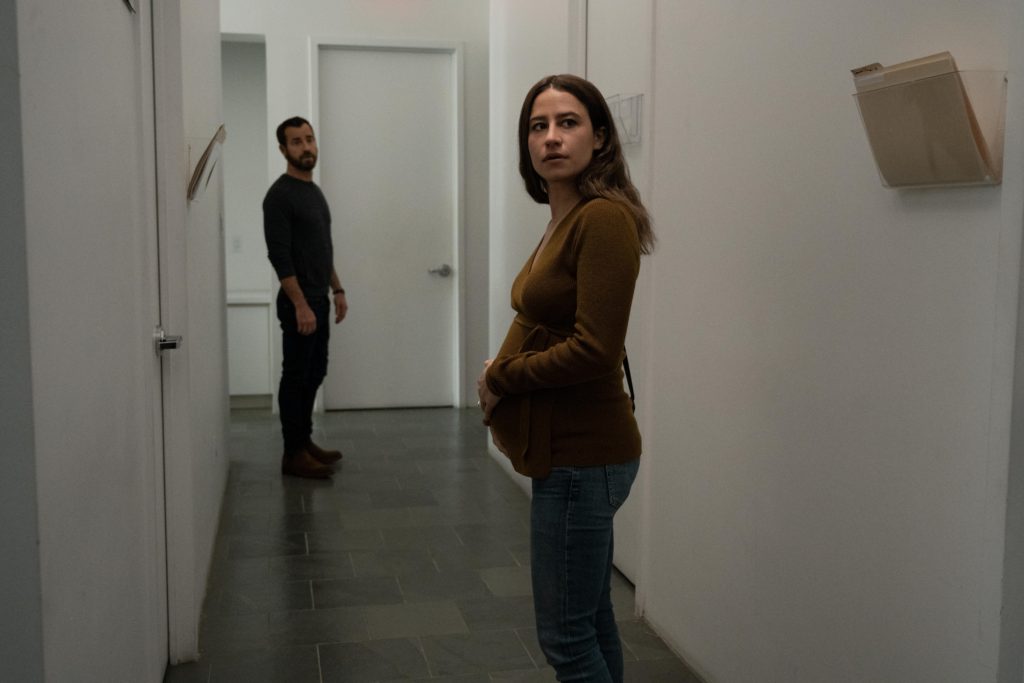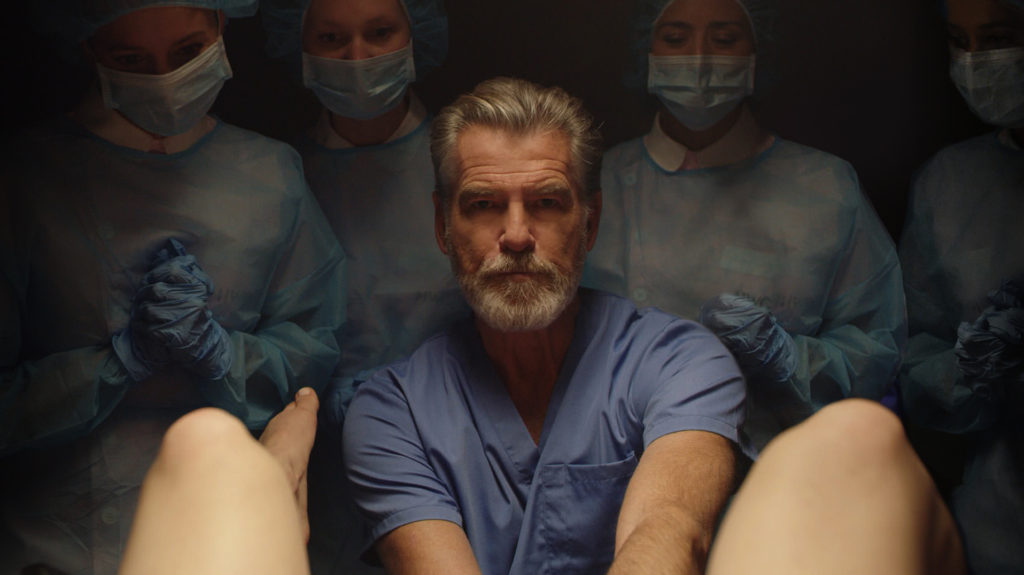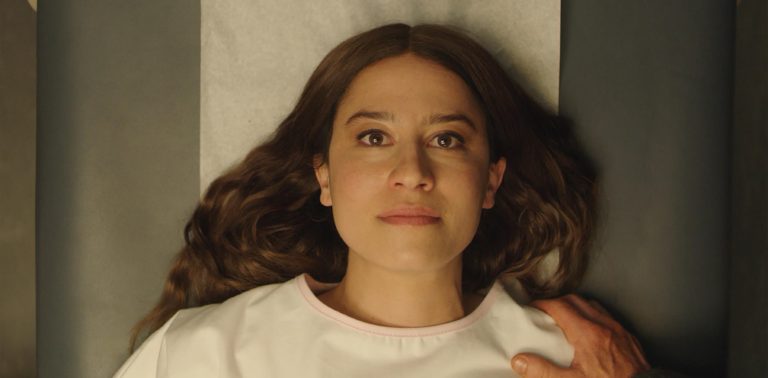A film that works better in theory than in execution, False Positive is still an often unsettling examination of the unexpected horrors of what can happen when you’re expecting.
I have an initial gripe that needs to be gotten out of the way. *Deep breath* False Positive is not a ripoff of Rosemary’s Baby and everyone needs to stop making the easy comparison. While discussing a film often requires acknowledging reference points, it is important to know that this is not a pseudo remake of the 1968 film. While this comparison is mostly just chatter from people who haven’t yet seen the movie, I fear it might not fade even after people have seen the film for themselves.
Are there perhaps similar aspects or elements that may draw from the iconic horror film? Maybe, but the same argument could be made about countless other horror films of old. Nothing can be made entirely in a vacuum and all art will be in conversation with what came before it, sometimes even in ways that aren’t always intended. This film is still distinctly its own with its own mechanics and vision that, while not always perfectly executed, remains intriguing.

The story is that Lucy, played by Ilana Glazer in a rare dramatic role, is finally pregnant. She and her husband Adrian, played by a perfectly cast Justin Theroux, have been trying to have a child for a while but have had many failures. When a friend of her husband, Pierce Brosnan’s Dr. Hindle, helps them get pregnant she is overjoyed. However, she begins to notice a lot of strange quirks about the doctor as the things he is doing grow increasingly unnerving.
They initially seem harmless. At one point, Hindle refers to what he says is Adrian’s sperm as “powerful stuff.” It gets played off as awkward, bro banter. However, Lucy can’t shake the feeling that there is some sort of inside joke being played on her that everyone else is aware of. In particular, Adrian and the not-so-good doctor have an overly close bond. Having seen the film twice now, an abundance of details in everything from choice lines of dialogue to the staging of a scene with the men foretells the doom that is looming for Lucy.
Director John Lee, who wrote the film with Glazer, displays a clear commitment to the craft. Particular choices reveal details that are hidden just in the background. When Lucy is at work, she enters into her boss’s office to inform him that she is pregnant. She obviously wants privacy, but when he shouts in excitement you can see that her other colleagues already heard the news. The scene takes a moment of nervousness and ratchets it up even further by showing how her male colleagues are beyond disrespectful of her wants, even suggesting that she try to use her pregnancy to give them a business edge. Much of the tone is conveyed nonverbally with a small glance or change in framing that gives a powerfully profound immediacy.

Perhaps the most noteworthy aspect is how Glazer carries the moments where the film regrettably falters. She faces immense disrespect at almost every turn and gives a subtly riveting performance where you can practically see her internal screams raging. This gets more and more alarming until you will want to have her wreak havoc on all of the other characters in the film. Eventually she’s left with absolutely no one to turn to. Theroux seems charming, though only in a sickening fashion that hides his true intentions. He is playing the supportive part outwardly all while clearly harboring ulterior motives that he keeps from Lucy until it is far too late.
Unfortunately the film becomes predictable and even plodding. Narrative momentum suffers when the film really drags its feet before getting to the inevitable revelation. As many of the twists are incredibly clear and telegraphed from a mile away, they are not quite as impactful as they should be. Not every film needs to be mysterious, but by wearing its intentions so noticeably on its sleeve something is lost.
This isn’t helped by the film going into cycles that teeter into repetition. Some feel purposeful and important. When Lucy’s concerns are discounted over and over with the same dismissive phrase of “mommy brain,” our frustration mirrors her own. It is gaslighting in its purest form, a steady breaking down of a person’s faith in their own sense of the reality of the world. It makes Lucy’s eventual rage all the more cathartic. However, when scenes follow similar patterns without adding anything to her growth, that is less understandable. While the setting of the doctor’s office is important in how it is framed in an intentionally coldly claustrophobic manner, the regular visits can still be suffocating to the narrative itself.

In order to escape these moments where it traps itself in a loop and almost writes itself into a corner, the film relies on plot contrivances that don’t hold up for longer than a moment. When an inexplicably convenient magazine becomes the key to discovering more information about what is happening, it strains the bounds of narrative credulity. As the film relies increasingly on cheap shortcuts, it becomes impossible to overlook the cracks around the edges.
However, even with the noticeable flaws, a lot of False Positive stuck with me. When Lucy is noticing that her life is improving and remarks to Adrian that she is “going to be one of those women who has it all” it instills a deeper sense of tragedy. You can tell that this scene exists to give Lucy something to lose and that is incredibly rattling. Anticipating the impending agony and loss in store for her makes for a genuinely terrifying experience. The final scene mixes that terror and tragedy to leave, for better or worse, a lasting impression.
False Positive is on Hulu on June 25.




